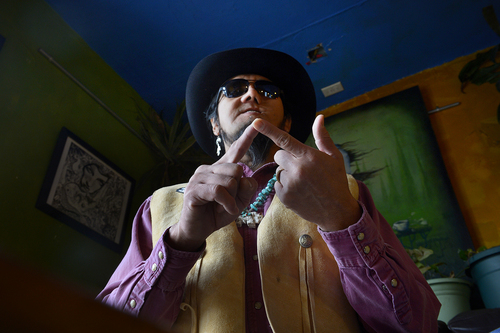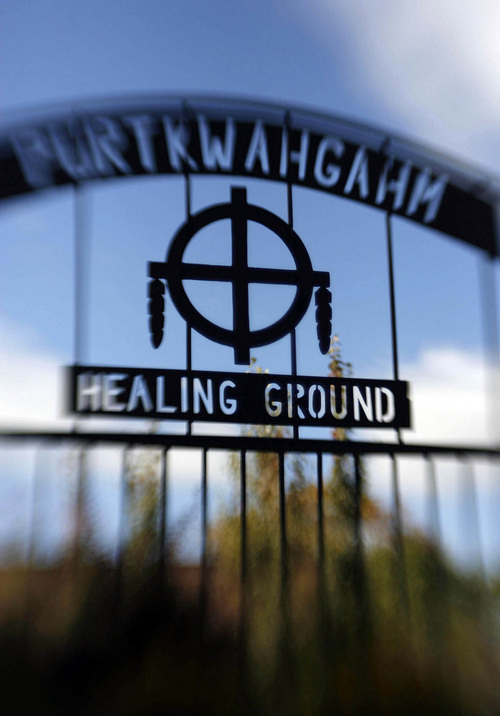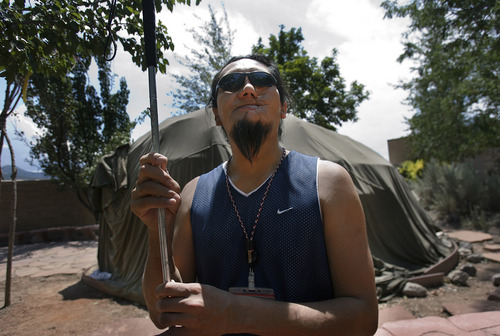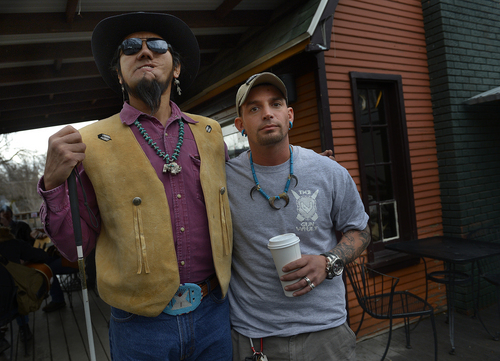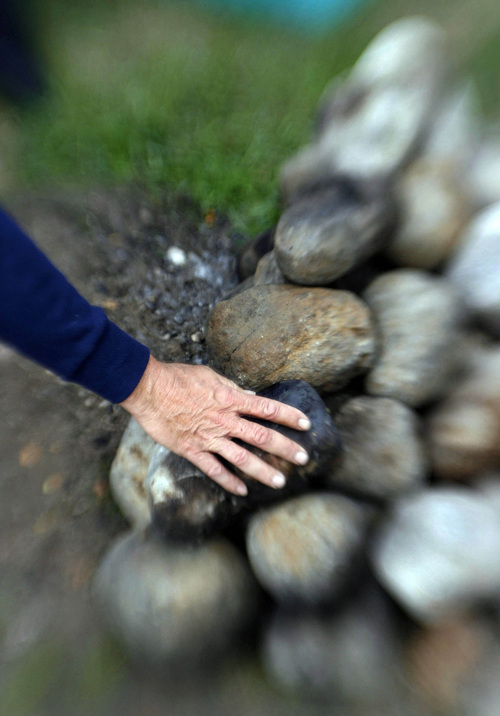This is an archived article that was published on sltrib.com in 2014, and information in the article may be outdated. It is provided only for personal research purposes and may not be reprinted.
Salt Lake City's veterans hospital has awarded a California company the contract to provide Native American spiritual services, perhaps ending its relationship with a local medicine man who has led ceremonies at the hospital's renowned sweat lodge.
Perez said she will work with local partners to provide the services. She declined to identify the local partner because she has not yet received final paperwork from Veterans Affairs.
Jill Atwood, a spokeswoman for the Wahlen Department of Veterans Affairs Medical Center, said the contract is for four years. The dollar amount has not yet been disclosed.
Atwood said GC Green may seek to subcontract some of its Native American services, which could leave the door open to the return of Arnold Thomas, who has led weekly sweat lodge ceremonies at the medical center since 2006.
But, for now, the sweats are on hold until the new contractor resumes them June 27.
Veterans last week went to the sweat lodge on the Native American healing grounds on the medical center campus and disassembled it when the new contract was announced.
Cal Bench, a Vietnam veteran who volunteers at the Wahlen medical center and regularly attends the sweat lodge ceremonies, said Native American tradition requires the next practitioner to bring his or her own lodge, or receive permission from Thomas to use the old one.
"It's a common practice," Bench explains. "When one man leaves, his lodge comes down."
The lodge resembles a tepee. Water is poured over hot rocks to generate steam and herbs are burned as Native American prayers and songs are recited. The ceremonies attract Native American veterans andother veterans recovering from addiction and psychological trauma.
Thomas resigned earlier this year — under duress, he said — in a dispute about what he said was discriminationby the VAagainst Native American beliefs. Thomas did not like a proposal to reduce the number of sweats from weekly to 18 a year, and there was a dispute aboutwho would buy the firewood.
His resignation spurred a Jan. 31 demonstration by veterans, one of whom, Iraq and Afghanistan veteran Cory Navarro, began a fast inside the sweat lodgethat lasted three days.
As part of an agreement to end the demonstration, Thomas was allowed to resume leading the weekly sweats while the medical center sought a permanent leader through the federal contracting process.
Then-Wahlen medical center director Steven Young made the agreement with the veterans. Young has since been transferred to lead the Phoenix VA hospital. That hospital has been at the center of a national scandal over waits for medical service.
Some of those veterans were upset again in May when an email written by Young, obtained through a records request, showed that police at the medical center used a "guise" to gain information about the veterans' planned demonstration. Atwood later explained the police were concerned about the safety of the medical center and its employees.
The new contract provides for more Native American services than had been offered previously, Atwood said. The contract requires 52 sweats a year, as well as 150 talking-circle ceremonies and 25 smudge ceremonies. The contract also anticipates five "end-of-life ceremonies" every year.
"We're just glad that we're able to provide this service and make it better," Atwood said.
Thomas did not reply to requests for comment.
Bench said he is willing to resume attending sweats under a new Native American leader and noted that the sweat lodge ceremonies are especially important to younger veterans.
"I want it to go on," Bench said, "and I want it to go on in a proper way."
Twitter: @natecarlisle


